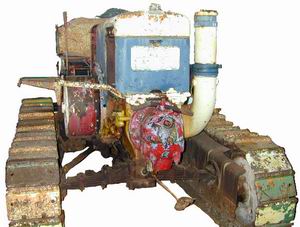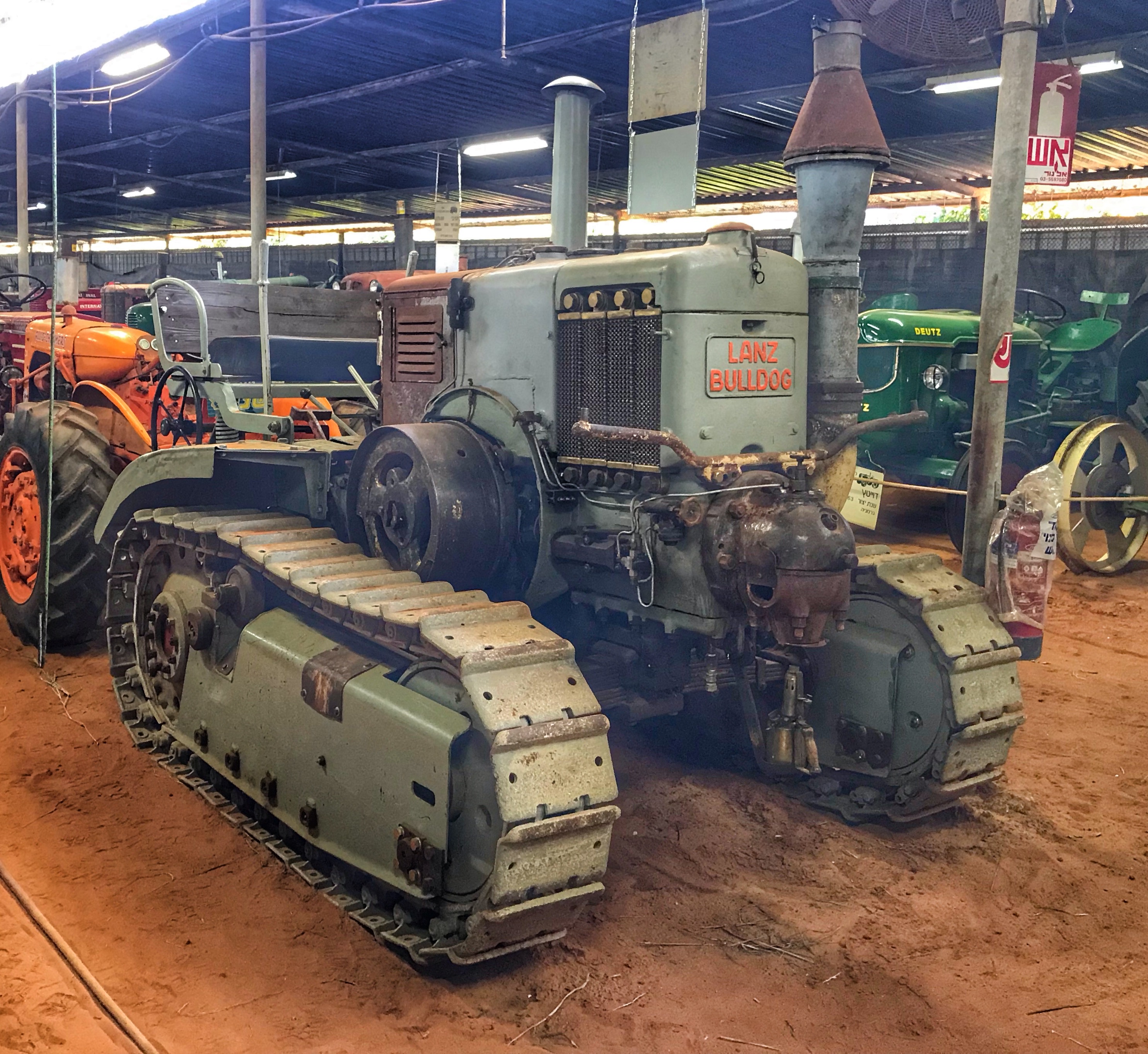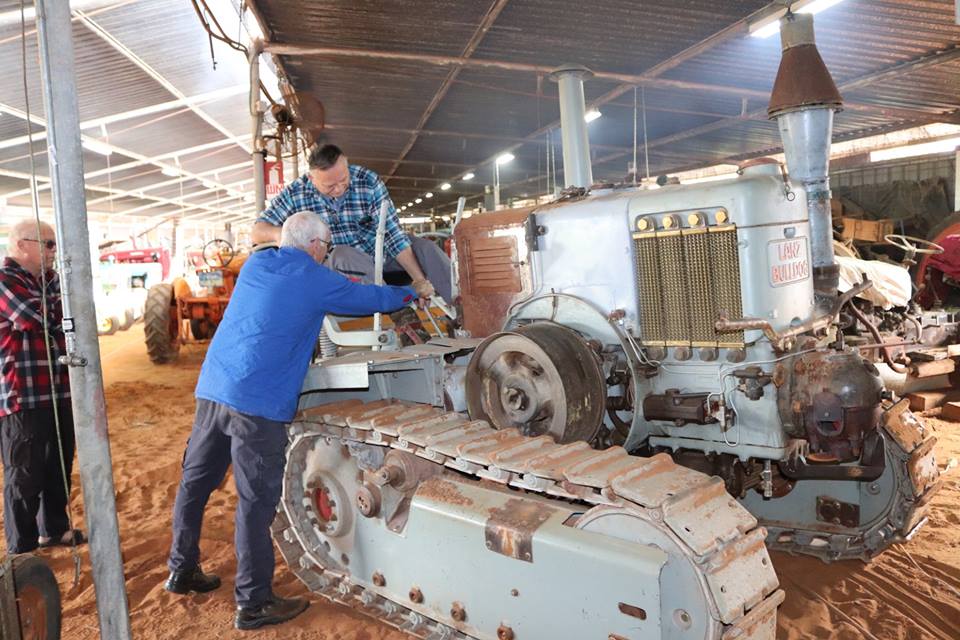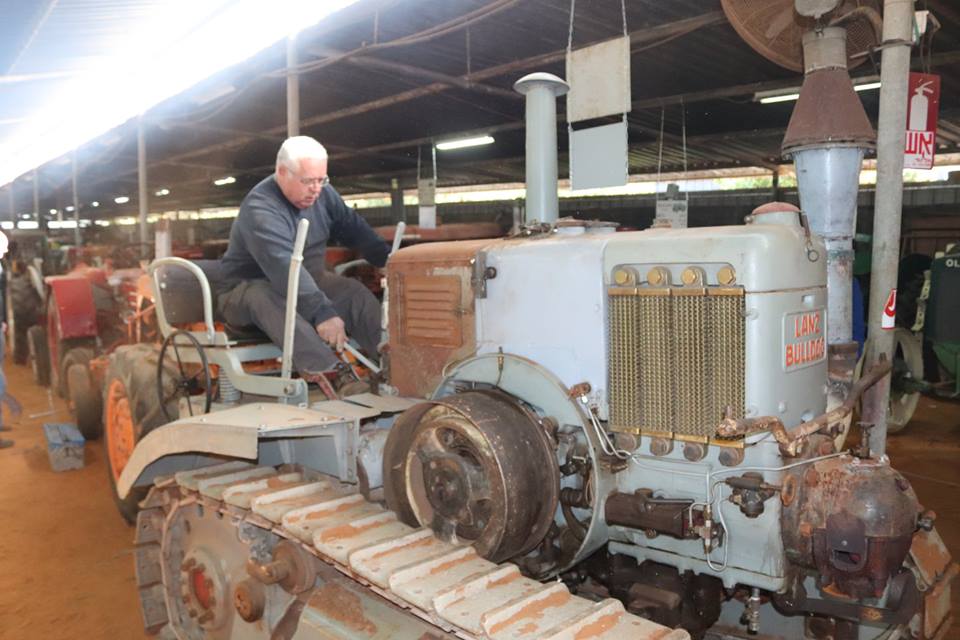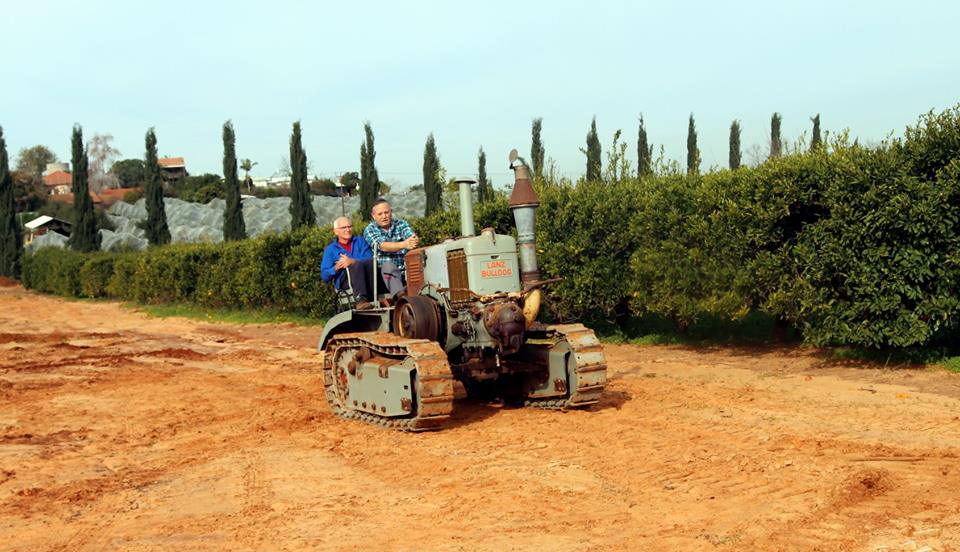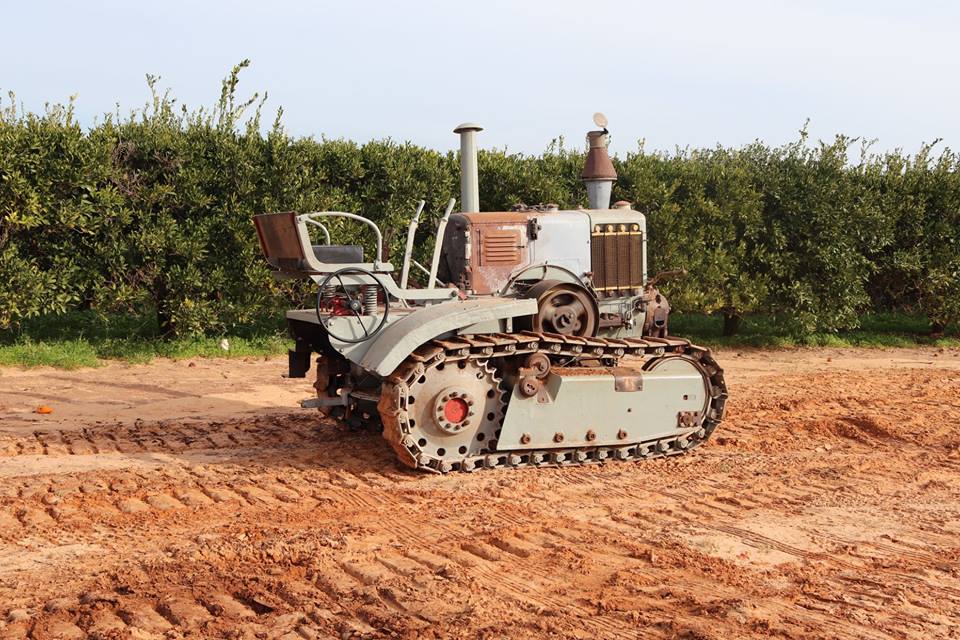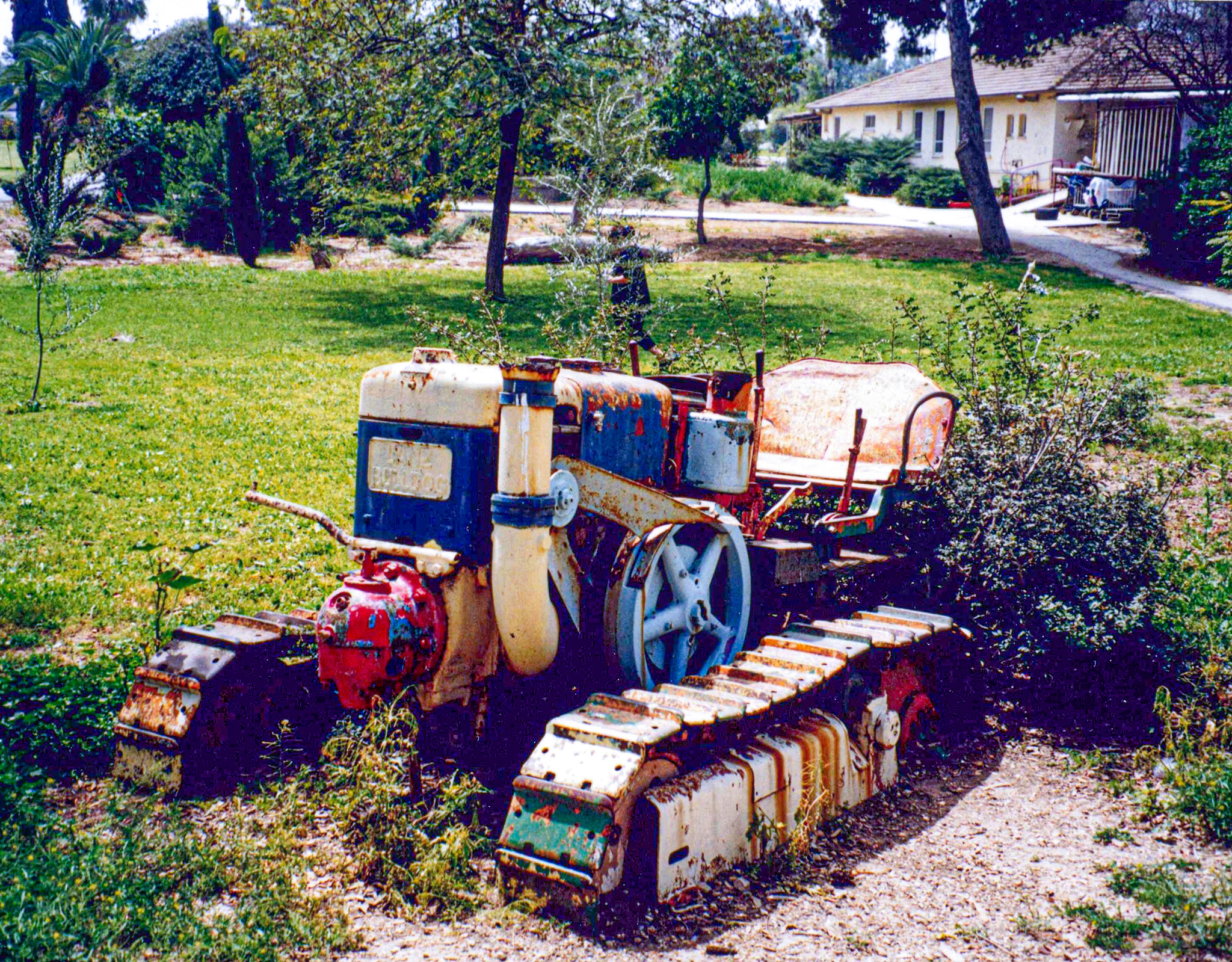Lanz, Bulldog, 1937, Revadim
During the ‘tractor business dealings’ between us, I promised you some details on the LANZ tractor. Here they are.
The tractor was found in an abandoned shed on the Shenlar farm north of Kfar Menahem. In August 1948 it was not in a workable condition. According to the people of Kfar Menahem it worked until 1946. In my opinion it arrived here in 1937 or 1938 because in 1939 when the Second World War broke out, all the Germans were arrested by the mandate government as citizens of an enemy country and were exiled to Australia.
Later, their lands were worked by Arabs who received permission from the British mandate authority. Shenlar was a protestant missionary who arrived in Jerusalem in 1856. In 1860 Shenlar went to Lebanon to collect Christian orphans who lost their families in the slaughter carried out by the Muslims and the Druze. He brought a group of homeless orphans, got money from Germany, his country, and started the Syrian Orphanage, the official name of the German Mission in Jerusalem in Shenlar’s name which still exists there. The institution developed and became known as an institution for professional training of a very high standard. They learned trades such as carpentry and metal work according to European standards which did not exist in this country then. After the First World War the institute absorbed Armenian boys and girls, orphans of the slaughter of the Armenians by the Turks.
At the beginning of the last century (1910) the institute opened branches in Nazareth and Ramleh. Today, in kibbutz Netzer Sirene (Dir Salim) there is a large farm-house erected by Shenlar’s son who inherited the running and development of the institute from his father. On this farm their main occupation was the growing of citrus.
A short time after this, in 1912, a farm was established near the Arab village of Hama which is north of Kfar Menahem. On this farm they cultivated field crops, and the students of the institute in Jerusalem specialized in agricultural work on European standards. A tin shed was put up, living quarters and store-houses made of coarse gravel rocks (Kurkar) which was brought from the Mer’ad quarries by Givat Brenner. As I said, in 1939 all the Germans were exiled from the country and the farmlands were taken over by an Arab Effendi from Ramleh. The Arabs used the LANZ tractor on their land.
After spending a year in the farmhouse, the members of Revadim moved to their permanent site in 1949. They towed the tractor from the Shenlar farm to this site and there it remained until the summer of 2002 when it became part of the tractor collection.
Natan Eidlin,
Kibbutz Revadim, Dec. 28 ,2000.
